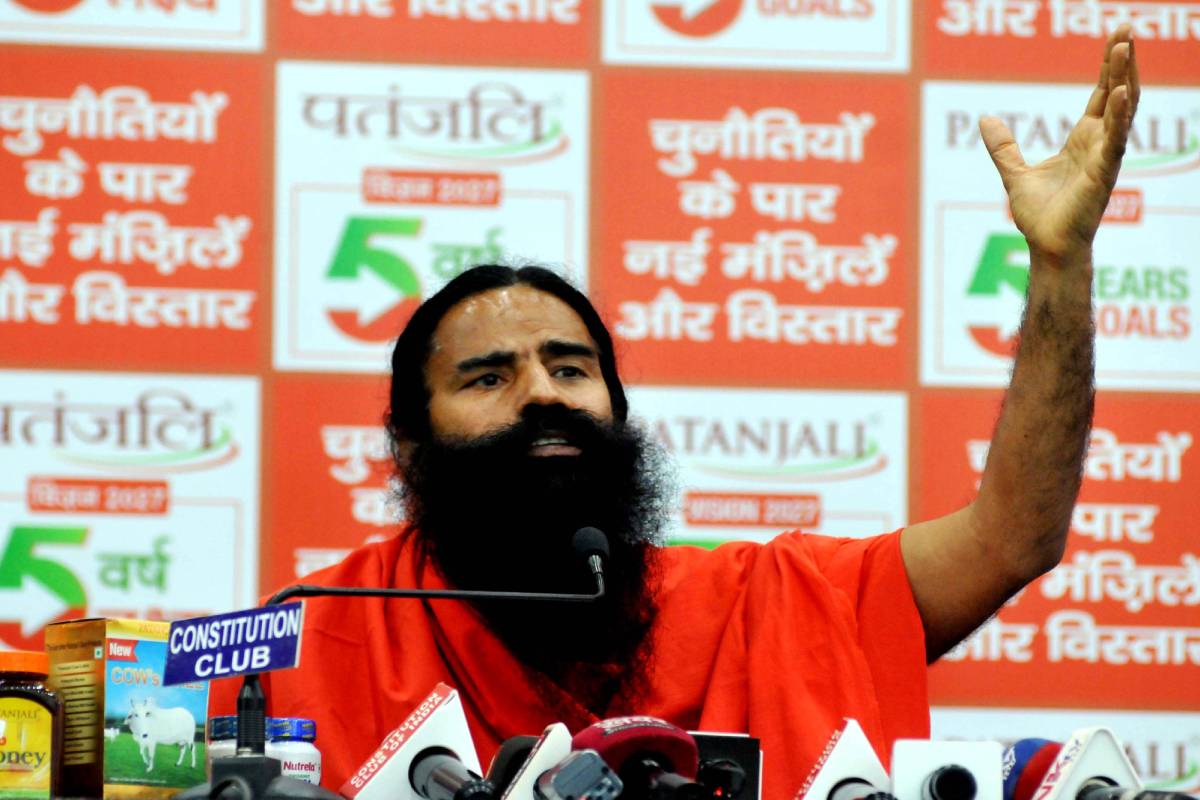Baba Ramdev’s fitness mantra: Build your body at home without a gym
Baba Ramdev shares a no-gym workout plan using bodyweight exercises and plant-based nutrition for fitness at home. Details inside.
These 14 products had their manufacturing licenses suspended by the Uttarakhand State Licensing Authority on April 15, but the suspension was later lifted.

Photo : SNS (Subrata Dutta)
The Supreme Court has directed Yoga guru Baba Ramdev’s Patanjali Ayurved Ltd, to submit an affidavit on whether the advertisements for 14 of its products have been withdrawn.
These 14 products had their manufacturing licenses suspended by the Uttarakhand State Licensing Authority on April 15, but the suspension was later lifted.
Advertisement
The state licensing authority filed an affidavit in the Supreme Court, explaining that the suspension order was canceled after a high-level committee reviewed Patanjali’s complaints. Initially, the suspension was paused on May 17 and later entirely canceled.
Advertisement
During the court proceedings, Justices Hima Kohli and Sandeep Mehta noted that Patanjali, in a May 16 affidavit, claimed to have halted the sale of the 14 products following the April 15 suspension. The affidavit also stated that Patanjali had taken steps to remove related advertisements from its official social media accounts.
“Respondent number five (Patanjali Ayurved Ltd) is directed to file an affidavit stating inter alia whether the request made to social media intermediaries have been acceded to and advertisements of 14 products have been removed/withdrawn,” the bench said.
The Supreme Court is hearing a plea from the Indian Medical Association (IMA), which accuses Patanjali of a smear campaign against the COVID-19 vaccination drive and modern medical practices. The court has given Patanjali two weeks to file its affidavit.
Senior advocate P S Patwalia, representing the IMA, was asked by the court if they had verified the withdrawal of the advertisements as claimed by Patanjali in its May affidavit.
An advocate for one of the applicants suggested that the Central government should swiftly address the issue of misleading advertisements, noting, “This is having a great impact on the online industry,” and adding, “The industry should not suffer. That is not the intent of the orders (of the court).”
Justice Kohli emphasized, “The intention is not to cause any harassment to anybody. The intention is only to focus on particular sectors and particular aspects.”
An advocate for a radio association noted that their advertisements are only 10 seconds long. The bench responded, “We are also of the opinion that the industry should not suffer in any manner. The focus of this court has already been highlighted in the previous orders and needs no repetition.”
The bench stressed the need for high-level discussions to streamline processes, saying, “We don’t want that there should be layers of approval so that whatever has to be shortened and simplified, that should be done.”
Acknowledging the expanded scope of the petition as per its May 7 order, the bench requested advocate Shadan Farasat to serve as amicus curiae. The amicus will assist the court by compiling data from state and central authorities to focus on the issues highlighted.
The bench asked Additional Solicitor General (ASG) K M Nataraj, representing the Centre, to convene a meeting with senior department officers for brainstorming. “Can we request you to convene a meeting so that all the stakeholders and the senior most officers of your department can have a brainstorming,” the bench said.
Nataraj informed the court that the Ministry of Information and Broadcasting had already conducted high-level meetings with stakeholders to address their issues. “He (ASG) submits that such meetings shall be taken further… to streamline the issues and point out the difficulties being faced by the intervenors and the manner in which they can be resolved,” the bench noted.
The court asked the ministry to continue these discussions and file an affidavit with its recommendations within three weeks.
The bench also requested that affidavits from various state licensing authorities be provided to the amicus to identify any non-compliance with the court’s orders.
The next hearing is scheduled for July 30.
Previously, on May 14, the Supreme Court had reserved its order on a contempt notice issued to Ramdev, his aide Balkrishna, and Patanjali Ayurved Ltd for misleading advertisements. Patanjali had assured the court on November 21 of the previous year that it would comply with advertising laws and avoid making unverified claims about its products. The court stated that Patanjali is “bound down to such assurance.”
Due to non-compliance with this undertaking and subsequent media statements, the court issued contempt notices.
Advertisement